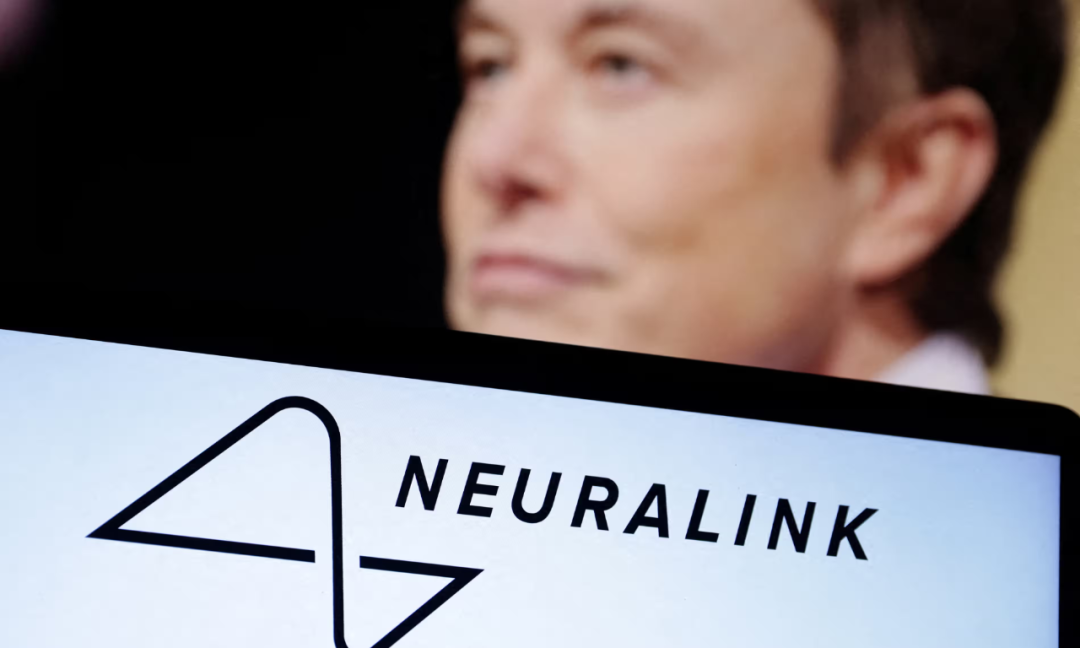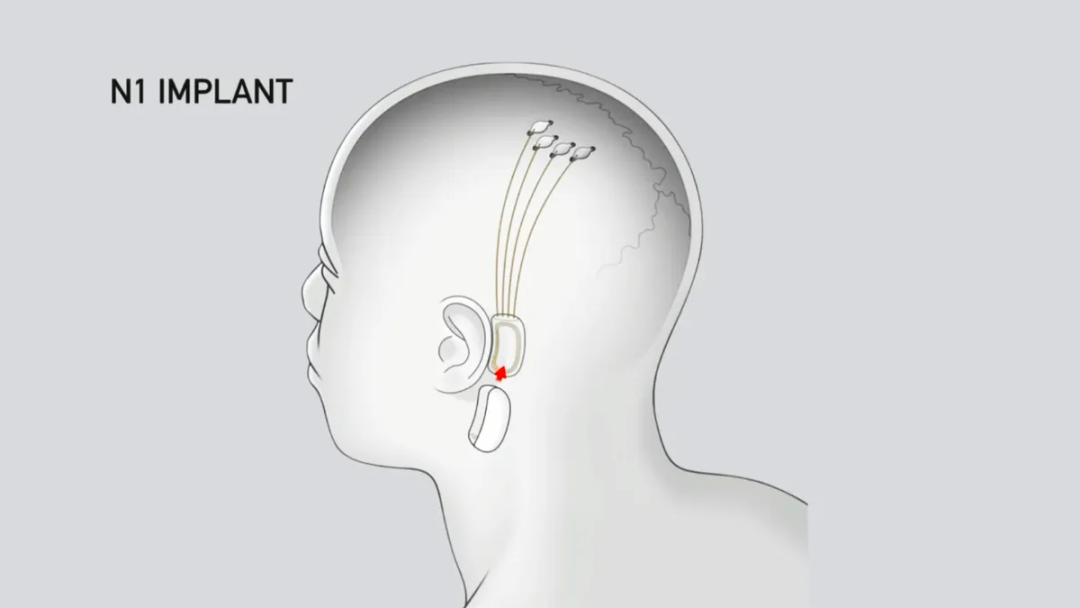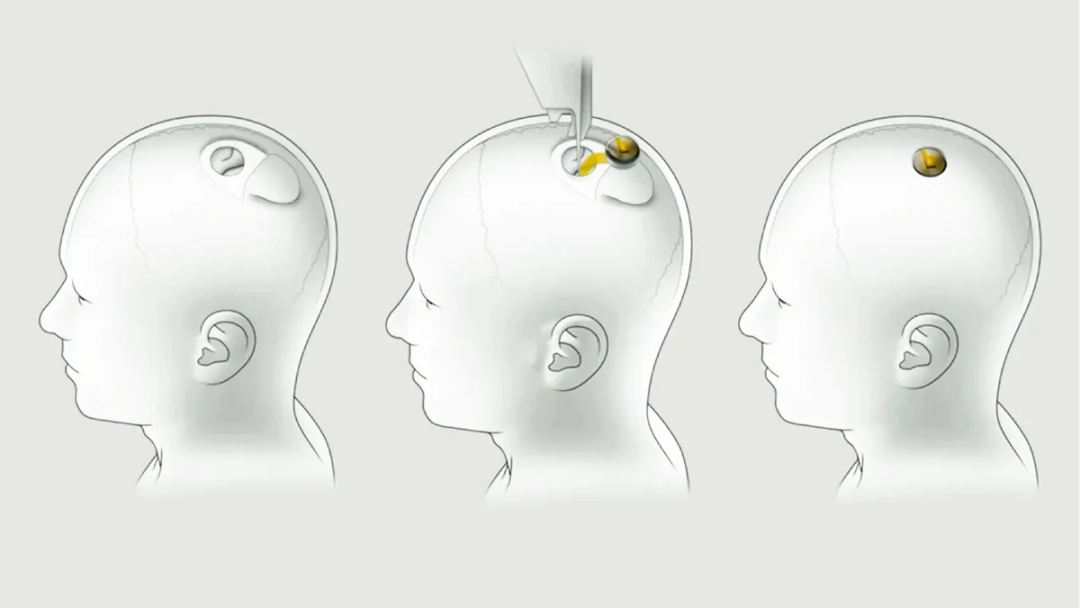Musk: Neuralink has implanted a chip into the human body for the first time, and the product is on the way

Musk’s brain-computer interface company Neuralink has finally begun human clinical research.
This morning, Elon Musk made an important announcement.

According to him on Twitter, Neuralink implanted a brain-computer interface device into a human body for the first time last Sunday, and the patient "recovered well."
This is the first human clinical trial Neuralink has conducted since it received FDA approval to conduct human clinical research last year and began recruiting patients in the fall. It is also the latest step on the road to commercialization of Neuralink’s “backbrain intubation” technology.

Compared with SpaceX rockets and Tesla electric cars, the exploration path of Neuralink, a brain-computer interface startup owned by Musk, has been full of twists and turns. Due to factors such as technological development and supervision, the progress has been slower than expected.
Neuralink has previously implanted brain-computer interface chips in the brains of mice, pigs and monkeys, but has been questioned by the outside world because of its handling of animal experiments. In November 2022, Musk said that Neuralink's first human-implanted brain-computer interface would be carried out within 6 months. However, it was not until March last year that the U.S. Food and Drug Administration (FDA) rejected Neuralink's clinical trial. Apply.
The FDA at the time said Neuralink needed to address "dozens of issues," including questions about the safety of the device: whether the implant can be removed without damaging the brain, the safety of the lithium battery, and the wires that connect the implant. Displacement may occur.
In May last year, Neuralink finally received FDA approval to conduct its first human clinical trial. Neuralink had hoped to gain approval to implant its device in 10 patients, but after the FDA raised safety concerns, the company negotiated with the agency to reduce the number of experimental patients, according to company employees. However, we don’t know the current number of participants yet.
After announcing the experimental news today, Musk also updated Neuralink product information: Neuralink’s first product will be named Telepathy.

Musk: Plug in the brain-computer interface and you can control your phone or computer just by using your brain. Imagine Hawking communicating faster than a stenographer or an auctioneer. That's the goal.
Neuralink moves forward amid controversy
Neuralink was founded in 2016 and is mainly committed to developing invasive brain-computer interfaces for various brain-related diseases. The company's ultimate goal is to create a whole brain interface that can connect biology and artificial intelligence more closely.
Reuters reported in June last year that the company was valued at about $5 billion based on private equity transaction information.
In July 2019, Musk demonstrated Neuralink’s first product, N1 Link, at a press conference. N1 Link is a 1024 channel device that can transmit data over a wireless connection.

The company first announced in 2019 that it was testing its device on monkeys. In 2020, Neuralink demonstrated a pig implanted with its device and made some design changes to the device. In 2021, Neuralink caused a huge stir when it released a video showing a monkey implanted with its device telepathically playing a video game.
Neuralink's research has been questioned by all parties. The US animal protection organization PCRM once filed a lawsuit against Neuralink, accusing it of "cruelty" to monkeys.
Neuralink has responded: "Many monkeys were already in poor health before participating in the trial and were about to be euthanized. All new medical devices must be tested on animals first and then on humans. This is Neuralink There is no escaping the rules. But we are absolutely committed to working with animals in the most humane and ethical way possible."
Although animal testing has been controversial, Neuralink began recruiting paralyzed patients last September for the first human trial of its brain implant.
This is a 6-year brain-computer interface experimental research that will conduct a groundbreaking medical device trial for a fully implantable wireless brain-computer interface (BCI), called the PRIME (Precise Robotically Implanted Brain-Computer Interface) study . The PRIME study aims to evaluate the safety of the implant (N1) and surgical robot (R1) and evaluate the preliminary functionality of the BCI in helping paralyzed patients control external devices with their thoughts.
The PRIME study uses the R1 robot to surgically implant the ultra-thin flexible wires of the N1 implant into areas of the brain that control movement intentions. Once implanted, the N1 implant is visually invisible and is designed to record brain signals and wirelessly transmit them to an application that decodes movement intentions. BCI's original goal was to enable people to control a computer cursor or keyboard with just their thoughts.
Now, PRIME research has implanted a brain-computer interface device into a human body for the first time.
So, which user groups will Neuralink’s first practical product target?

Musk has previously said that the brain-computer interface being designed by Neuralink will first focus on two applications: restoring human vision, and helping people who cannot move muscles control devices such as smartphones, and even restoring the full body functions of people with spinal cord injuries.
"In many ways, it's like a Fitbit (a wearable smart device product) in your skull, connected by tiny wires," Musk once said of Neuralink's device.
If such an ability is achieved, Neuralink will further try to implant multiple brain-computer interfaces in the human brain and spinal cord to help quadriplegics walk again. Musk said that he will also have a brain-computer interface implanted in the future.